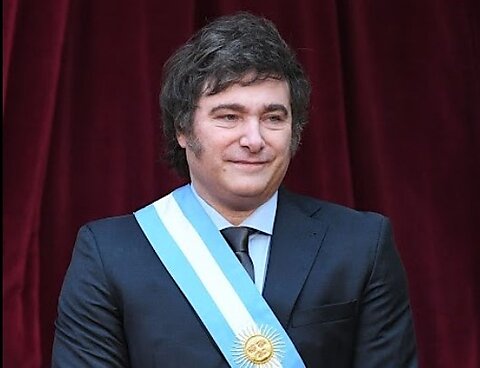
Ian Vásquez
Argentine President Javier Milei delivered an impeccably libertarian address to the country this week, announcing major deregulation and what is surely the largest such reform package in the history of his country. Specifically, he issued a decree that repeals or reforms 300 laws that, according to Milei, will begin reversing “decades of failure, impoverishment, decadence, and anomie.”
Milei didn’t merely describe the country’s economic and social crisis. He framed his decree in historical terms, citing how Argentina put collectivist thought—whether leftist, fascist, or otherwise—in practice in the past 100 years and, through ups and downs, lost its freedom as a result. He indicted the political economy that has long prevailed in Argentina as the cause of the country’s problems. The unwillingness of politicians to deal with the underlying causes of Argentina’s recurrent crises has led them to implement an unending series of regulations that try to address the consequences.
Thus, Milei explained: “The state as a whole has become a mechanism to impede trade, work, production, savings, investment, the generation of wealth, economic growth, and, fundamentally, freedom.”
Milei is right to highlight the demise and importance of freedom. Over the past twenty years of mostly Peronist rule, Argentina’s loss of freedom has been notable. Its ranking in the new Human Freedom Index fell from 41 in the year 2000 to 77 out of 165 countries. But the spectacular decline in Argentina’s economic freedom—based on the security of private property, voluntary exchange, and the freedom to choose and to compete—greatly reduced its overall freedom. It ranked in 40th place in economic freedom in 2000 and is at an astounding 158th place now.
The index shows that Argentina has one of the most closed economies to trade in the world (163rd place) and has among the worst monetary policies (161st place). Argentina also has one of the most regulated economies in the world. The weight of the regulatory state there has increased over time, making Argentina’s ranking fall from 84th place in 2000 to 143rd place now.
From a practical, economic, and human rights perspective, Milei’s sweeping deregulation decree makes sense. It aims to reduce state favoritism and to improve growth and opportunity, especially for the least well‐off. Also noteworthy is that, according to one analysis, 138 of the 300 regulations Milei is repealing or reforming originated under the military dictatorships of the 1960s through the early 1980s. If we include Peronist President Cristina Kirchner’s term (2007–15), more than half of the regulations being overturned originated in military or populist‐authoritarian governments.
Milei’s decree covers a wide range of laws. Some of the deregulations include:
• Repeal of the law regulating the rental of real estate. The restrictions on length of the rents, conditions for enforcement, method of payment, were so rigid and unreasonable that the result has been a nationwide housing scarcity, high prices, and the growth of an informal rental market.
• Repeal of the supply law and the shelves law that required stores to stock their shelves according to rules governing which products (by company and by national origin) could be displayed and in which proportions.
• Repeal of the “Buy Argentina” law, equivalent to “Buy America” laws.
• End to price controls, which predictably generated scarcity.
• Repeal of Industrial Policy.
• Repeal of the law that prohibits the privatization of state‐owned enterprises.
• Liberalization of the labor law.
• An end to the prohibition of exports.
• Authorization to transfer the shares of the national airline Aerolineas Argentinas. Milei plans to privatize the airline, which has lost billions of dollars over the years, by transferring ownership to its workers. When Milei earlier proposed this idea, the head of the pilot’s union objected by declaring “they’re going to have to kill us” if they try.
• Implementation of open skies policy.
• Strengthening of contract law to secure the freedom of contract.
• Law reform to allow for contracts made in foreign currencies to be upheld. In practice, this legalizes transactions in dollars and other currencies, including exchanging pesos for dollars and including the use of bitcoin and other cryptocurrencies.
There’s much more in the decree, but the above gives a sense of its scope and depth. Predictably, some of the interest groups that will finally be exposed to competition—e.g., employees of state‐owned banks, unions, pharmaceutical companies—have protested the deregulations. But so far the move looks largely popular.
Argentina has such a repressed economy, however, that much more reform is still needed to improve its economic freedom to the level of the most successful countries (like much of Western Europe and North America, Japan, Taiwan, Korea, Australia, etc.). But Milei and his team know that and, in the coming days and weeks, we can expect further far‐reaching reform proposals that will go through the congress.




